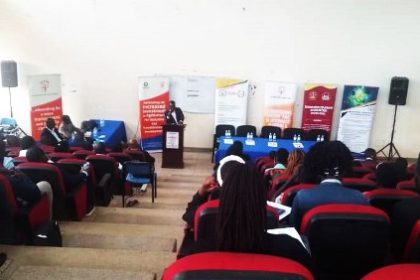Will money concerns triumph over security in phantom phone crackdown?

As Ugandan telco’s adopt a wait and see attitude over the likely impact of an order freezing the sale of new subscriber identity modules (SIMCARDS), pending installation of national ID card readers at points of sale, a more perilous question facing the industry and policy makers, is whether anybody will have the stomach to get phantom handsets, or ‘fake phones’ as they are better known, off the market.
Earlier this month, sector regulator Uganda Communications Authority ordered telecom companies to stop recruitment of new subscribers until they have installed national ID card readers at their sales points. This forms part of efforts to achieve what for long has been an elusive goal to match telephone lines to user identities.
Earlier attempts to implement this measure were stymied by security sector that craves anonymity but lacks the ethical framework to prevent abuse of the privilege. That veil was finally lifted after the kidnapping for ransom and subsequent gruesome murder of Susan Magara, a young mid-level manager, on February 21.
While they are yet to come out with detailed projects of likely impact on industry revenues, the telco’s agree that the measure will impose a penalty though of a lesser magnitude than what the industry has experienced since 2015 when Simcard registration was first ordered.
That year, MTN Uganda reported a 14.1 percent decline in subscriber numbers that partly contributed to a 6.2 percent dip in overall taxes payable. Even with a determined push, by Q3 2017, MTN was yet to recover 750,000 subscribers that were switched off.
Airtel has not volunteered information on the subject.
Valery Okecho, the manager for corporate communications at MTN, said though some impact could be anticipated, it was not expected to be as severe as the Simcard switch-off.
“That time we were dealing with loss of customers that were already on the network, so the loss was more pronounced. This time it is about our ability to recruit news subscribers so the impacts are different,” Okecho told 256BN
He however sees the proposed clampdown on phantom phones – devices that lack an International Mobile Equipment Identity IMEI, a 15 to 17-digit code that uniquely identifies mobile phones; and enables a network provider to block their usage in the event of theft or loss, as revenue neutral.
Affected customers, he reasoned would still need to communicate and will therefore replace their phones minimising the impact on revenues.
“This is an entirely regulator activity but MTN will cooperate where required. We view this as UCC seeking to ‘raid’ the market to clamp down on dealers and owners of fake phones, the same way the consumer standards body UNBS would do for fake products on the market. MTN supports this move,” Okecho said.
This is at variance with some estimates that put the number of phantom phones on the market at 25percent of all on-net devices. A clampdown would potentially see upwards of 5.2 million handsets switched off.
UCC was not available to provide the revenue losses that could be associated with the crackdown but the possibility alone is likely to give ammunition to opponents of regulation.

 Shell Club rewards first winners with brand new motorbikes in Mbale
Shell Club rewards first winners with brand new motorbikes in Mbale
 CSBAG roots for increased funding for renewable energy
CSBAG roots for increased funding for renewable energy
 Equity walks tried and tested path to deliver solid half-year
Equity walks tried and tested path to deliver solid half-year
 Nile Breweries primes retailers for brave new world
Nile Breweries primes retailers for brave new world
 Uganda calls for collaboration with airlines in fight against illicit trade in wildlife
Uganda calls for collaboration with airlines in fight against illicit trade in wildlife
 Airline industry top guns dust-off passports for Uganda hosted 55th AFRAA annual meet
Airline industry top guns dust-off passports for Uganda hosted 55th AFRAA annual meet
